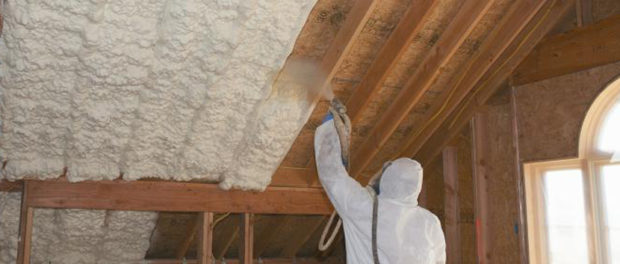Government call to action not too late to help create better-insulated future

The energy-deficiency of the UK’s ageing housing stock was once again thrown into sharp focus with the publication of a report by the UK Green Building Council. The ‘Building Places That Work for Everyone’ policy paper stated 25 million homes across the country will not meet required insulation standards by 2050 – a significant year for the government, as by then it has to have met its legally-binding pledge to cut UK greenhouse gas emissions by at least 80% from the 1990 baseline. An enormous task, particularly as poorly-insulated homes account for 25% of emissions released in the UK.
The UK Green Building Council, which produced the report in conjunction with the construction industry, has urged the government to impose a countrywide programme of home renovation to increase energy-efficiency and improve the health, wealth and wellbeing of occupants. However, sceptics have already raised doubts over the potential success of such a scheme, citing the failure of the government’s ‘Green Deal’. Launched in 2013, the scheme offered loans to homeowners embarking on domestic energy-saving measures. It was scrapped two years later after figures revealed only 14,000 householders took-up the option. The £50 million government loan outlay fell a long way short of its £1.1 billion forecast, with high interest rates for insulation given as a reason for ‘the Deal’s’ ultimate collapse.
There can be no doubt the thermal performance of UK buildings needs urgent address. Even though the 2050 ‘emissions deadline’ might be viewed by some as ‘an issue for tomorrow’, the spiritual and fiscal comfort of today’s home owner/occupiers can be vastly improved with a building that excels in terms of thermal performance and energy-efficiency.
Go public
Understandably, perhaps, much attention is paid to the insulation of a building’s roof, windows and doors, as these are its biggest source of energy loss. However, if the government makes good its promise to act ‘as soon as possible’ and devise appropriate policies in response to the building council’s report, let’s hope measures include a concerted education programme that informs housebuilders and homeowners of the many simple and cost-effective ways a property’s thermal performance can be maintained.
The message the government needs to get across is ‘every little helps’ when it comes to ensuring new and existing UK properties leave less of a carbon footprint. Baumit is among the world’s leading innovators in the production external wall insulation. The ground-breaking technology in its vapour-permeable renders and paints which enables buildings to breathe but remain airtight, is simply astonishing. On a similar note, Baumit’s Nanopor self-cleaning range of paints and renders uses natural elements – sunlight, humidity and wind – to leave a façade looking pristine, thus eliminating the need for constant renovation and aggressive cleansing techniques using environmentally-unsound chemicals or detergents.
From the day the company was founded in 1988, Baumit’s ethos has been to help create beautiful, energy-efficient and healthy homes. It might be that the latest Green Council report has finally instilled a sense of urgency within the UK government to follow the same dream. ‘Better late than never’ might be the attitude of some towards Westminster’s current call to action. It’s never too late, however, if the policies being discussed today, lead to better-insulated homes of the future and a healthier environment for our children.
